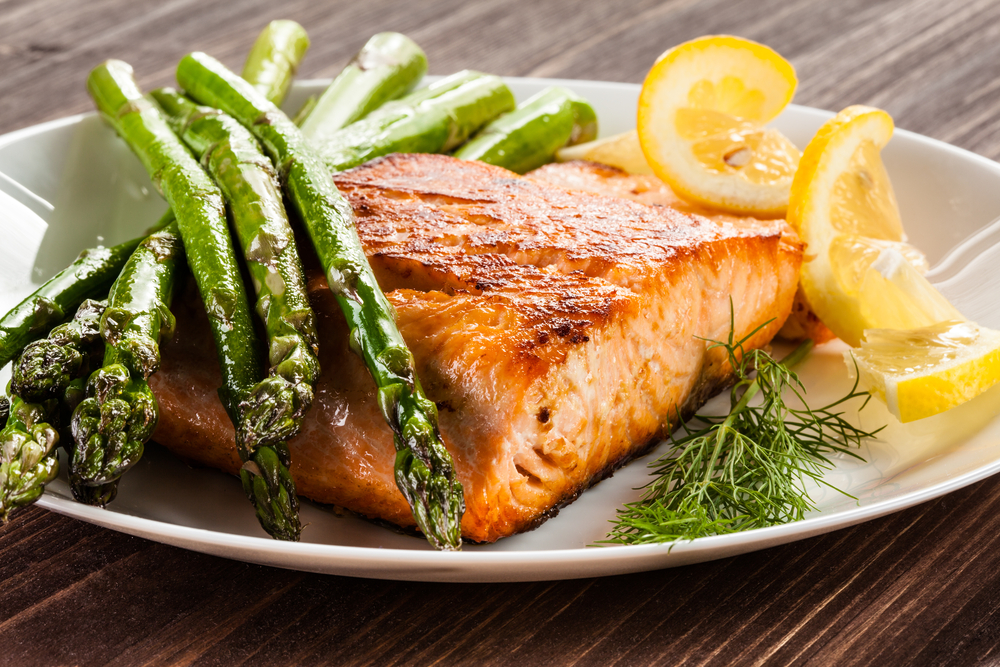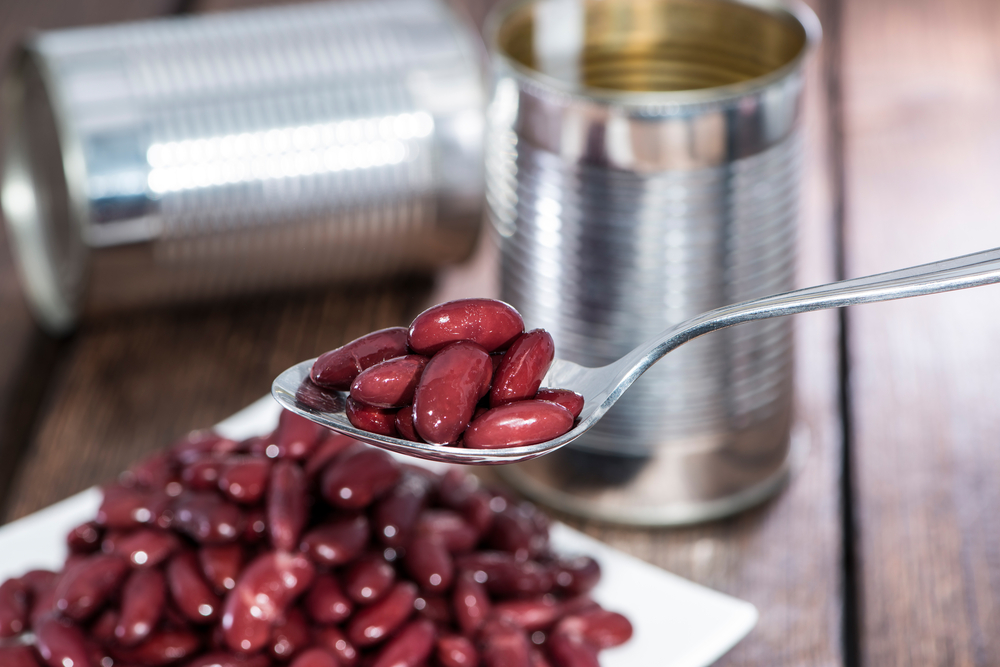Trying for a baby
Trying for a baby
Deciding to have a baby is an exciting time and you will be thinking about many aspects of your life. This is a great chance for you to make some healthy changes to your lifestyle and eating habits before your family grows.
It is particularly important that your diet and lifestyle are healthy when you are trying for a baby and during pregnancy. This is because your eating and lifestyle habits not only influence your own health and fertility, but can also affect your growing baby if you get pregnant.
If you are planning to have a baby, this section will provide you with some useful information to help you prepare your body for pregnancy.
This article covers the following:
- Aim for a healthy weight
- Be active
- Important nutrients for pregnancy
- Eat fish but choose the species wisely
- Look at your iron intake
- Advice on alcohol and caffeine
- Advice for men

Being a healthy weight may increase your chances of becoming pregnant.
If you are a healthy weight, then you are also less likely to have complications during pregnancy and childbirth, and it is best for the health of your baby too.
What is a healthy bodyweight?
You are a healthy weight if you have a BMI (body mass index) between 18.5 and 25.
Tip: You can use an online BMI calculator, or you can calculate your BMI if you divide your body weight in kilograms by your height in metres, and then divide the result by your height in metres again. Use an online BMI calculator such as this one from the NHS.
For example:
|
If you are 1.67m tall and weigh 65kg the calculation is: 65 ÷ 1.67 ÷ 1.67 = 23.3 A result of 23.3 means that you have a healthy bodyweight. |
Being underweight or overweight can affect your chances of becoming pregnant.
Women who have too little body fat are more likely to have irregular periods (menstruation) or no periods at all, which can affect your ability to conceive. If you have suffered, or are suffering, from an eating disorder, gaining weight might be hard for you to manage. If this is the case, tell your doctor that putting on weight may raise difficult feelings for you. Extra support, such as counselling from a mental health professional, can help you cope with the challenges around eating healthily before and during your pregnancy.
Having too much body fat can also lower your fertility. Some women who have excess body fat do not ovulate normally (they do not produce fertile eggs each month). So, if you are overweight (your BMI is higher than 25) and you want to have a baby, it can help increase your chances of becoming pregnant if you lose some weight. This is best achieved through a healthy diet and lifestyle, including regular physical activity.
Very low-calorie diets, fad diets, and those that exclude a wide variety of foods or a whole food group, should be avoided as they can result in low intakes of some nutrients. Losing weight whilst you are pregnant is not advised as it is unclear whether this is safe, so it is best to get to a healthy weight before you become pregnant.
Pre-pregnancy weight loss tips include:
- Eat a healthy, varied diet including plenty of fruit and vegetables, wholegrain cereals, and some low-fat dairy products, legumes, lean meat and fish.
- Decrease the amount of energy-dense foods that you are eating, particularly foods high in fat and/or sugar (such as fried foods, biscuits, confectionery and sugars-sweetened soft drinks).
- Protein foods such as lean meat, chicken and fish, and high-fibre foods such as wholegrains and beans and pulses, are a good source of nutrients and may help to keep you feeling full for longer.
- Set yourself achievable goals, highlight all the small positive steps you have taken, and try adding more to the list each week.
- Boost your fitness – physical activity can help you to burn off extra calories. It’s also been shown to help support a healthy pregnancy.

Regular physical activity will help you keep a healthy bodyweight. Get into the habit of doing regular physical activity, as during pregnancy this can help reduce lower back pain, swelling of the legs and feet and tiredness, which are common during pregnancy. For tips on keeping active during pregnancy see our page on physical activity in pregnancy.
Aim to do at least 150 minutes (2.5 hours) of physical activity each week. One way of achieving this would be to do an extra 30 minutes of activity on at least 5 days of the week, but you could also meet the target through more frequent but smaller bouts of 10 minutes or so. This could be through organised exercise or through activities in your daily life, such as brisk walking, gardening or active housework.

Important nutrients for pregnancy
A healthy, varied diet based on starchy foods (including wholegrain varieties), with plenty of fruit and vegetables and some lean meat, fish, eggs and other sources of protein, and low-fat dairy products is important for good health throughout life. When you want to become pregnant, it is even more important that you follow a healthy, balanced diet to get all the nutrients you need.
Dietary advice for women who are trying for a baby is mostly the same as for other adults. But there are some top tips that women who want to become pregnant should follow.
Take a folic acid supplement
This vitamin is particularly important before you become pregnant and during the first 12 weeks of pregnancy.
Extra folic acid during this time (for most women a supplement of 400µg (micrograms) per day of folic acid is recommended) reduces the risk of having a baby with a neural tube defect (problems affecting the baby’s spine and neural tubes, such as spina bifida).
If there’s a family history of neural tube defects, you’re taking anti-epileptic medication, or you’re diabetic, speak to your GP as you may need a higher dose.
It is also a good idea to eat foods that are high in folate, which is the natural form of folic acid found in foods like green leafy vegetables, wholegrains, nuts, peas, oranges and berries.
Think about vitamin D
Vitamin D helps your body absorb calcium from your diet, which is important for healthy bones for you and your baby.
We get most of our vitamin D from the action of sunlight on the skin. So, from about late March to the end of September, most of us should be able to get all the vitamin D we need from sunlight on our skin when we are outdoors. If you are out in the sun, take care to cover up or protect your skin with sunscreen before you turn red or get burnt. Between October and early March though we do not get sufficient vitamin D from sunlight alone.
Low blood levels of vitamin D are quite common in UK women, especially in the winter and early spring. Women with darker skin and women who spend very little time exposed to sunlight, for example because they cover their skin for cultural reasons or spend long periods indoors, are most at risk of low vitamin D status.
There are only a few dietary sources of vitamin D. Oily fish is a good source and eating oily fish once a week (such as salmon, trout, mackerel, sardines, pilchards and herring) can make a useful contribution to vitamin D intakes. Vitamin D is also found in eggs and is added to some breakfast cereals and fat spreads.
Because vitamin D is found only in a small number of foods, everyone, including pregnant and breastfeeding women, and women trying for a baby, should consider taking a daily supplement containing 10µg (micrograms) of vitamin D during the winter months. If you have dark skin (for example if you're of African, African Caribbean or south Asian origin) or if you tend to cover your skin while outside (or spend lots of time indoors), you may need to consider taking a daily vitamin D supplement all year round. Speak to a midwife or doctor for advice.
Do not take more than 100µg of vitamin D per day, as this could be harmful.
Some women can obtain free supplements via the government’s Healthy Start scheme.
Vitamin A
Women trying for a baby should also be aware that having large amounts of vitamin A can harm your unborn baby, so do not take supplements that contain vitamin A (including fish liver oil). You should also avoid eating liver or liver products, such as pâté, because these are very high in vitamin A. You can speak to your GP or midwife for more information.

Eat fish but choose the species carefully
As well as being an excellent source of vitamin D, oily fish is rich in long-chain omega-3 fatty acids, and this type of fat is required for the development of your baby’s brain and eyes. So, try to eat at least one portion of oily fish per week. However, because contaminants that may be present in some oily fish can be harmful if consumed in large amounts, limit yourself to no more than two portions of oily fish a week (one portion is 140g, cooked weight).
If you are trying for a baby or are pregnant, you should also avoid eating shark, swordfish and marlin, and you should not eat more than four medium-sized cans of tuna, or two fresh tuna steaks, a week. This is because these fish can contain more mercury than other kinds of fish, and this may harm your baby’s nervous system.

It's common for women to develop iron deficiency during pregnancy. This is because your body needs extra iron to ensure your baby has a sufficient blood supply and receives necessary oxygen and nutrients.
Try to build up your iron stores when you’re trying to become pregnant by eating a balanced diet, including iron-rich foods.
Good sources of iron are red meat, poultry and fish. Some plant food such as beans, dark green leafy vegetables, nuts and wholegrains also contain iron, but it is not as well absorbed by your body as the iron you eat from animal sources. However, vitamin C helps absorb the iron from plant sources. Try to include foods or drinks containing vitamin C (like a small glass of orange juice, tomatoes and peppers) with your meals to increase your iron uptake.

Advice on alcohol and caffeine
Avoid drinking alcohol
In 2016, the Department of Health updated the guidelines for alcohol consumption and recommends that if you are pregnant or planning a pregnancy, the safest approach is not to drink alcohol at all, to keep risks to your baby to a minimum.
The Chief Medical Officers’ guideline is that:
• If you are pregnant or planning a pregnancy, the safest approach is not to drink alcohol at all, to keep risks to your baby to a minimum.
• Drinking in pregnancy can lead to long-term harm to the baby, with the more you drink the greater the risk.
High intakes of alcohol may affect your baby’s development, particularly in the early stages of pregnancy. Recent reviews have shown that the risks of low birthweight, pre-term birth, and being small for gestational age all may increase in mothers drinking above 1-2 units/day during pregnancy.
As there may be a gap between when you conceive and when you find out that you are pregnant, it is best and safest to simply avoid drinking alcohol during this time.
However, the risk of harm to the baby is likely to be low if a woman has drunk only small amounts of alcohol before she knew she was pregnant or during pregnancy. Women who find out they are pregnant after already having drunk during early pregnancy should avoid further drinking but should be aware that it is unlikely in most cases that their baby has been affected.
Limit caffeine intake
Caffeine is found in coffee, tea, chocolate, some sports/energy drinks, some soft drinks and some cold and flu remedies.
You should limit your caffeine intake when you are trying for a baby and whilst pregnant. A high caffeine intake has been linked to an increased risk of your baby not growing as well as expected.
You should limit your intake of caffeine from all food and drink sources to around 200mg per day, which is roughly the amount in:
- 2 mugs of instant coffee (100mg each)
- 1 1/2 mugs of filter coffee (140mg each)
- 2 1/2 mugs of tea (75mg each)
A standard bar of dark chocolate contains around 50mg caffeine, a can of energy drink contains around 80mg caffeine, and a can of cola contains around 40mg caffeine.
High-caffeine energy drinks are legally required to declare “High Caffeine Content. Not recommended for children or pregnant or breast-feeding women”, followed by the exact caffeine content expressed in mg per 100ml on the label.
Coffee from a coffee shop or restaurant may contain higher levels of caffeine compared to coffee made at home. If you are concerned about the level of caffeine, choose a reduced strength or decaffeinated coffee.

Men should consider changes to their diet and lifestyle when trying for a baby too. Diet can affect male fertility - eating a healthy, varied diet and reducing alcohol intake can improve sperm quality and increase the chances of you and your partner conceiving.
There are many ways that dads-to-be can help boost their chances of having a baby through diet and lifestyle choices.
Be a healthy weight
Obese men are more likely to have low sperm counts and lower fertility. Ideally, men should try to keep a BMI within the healthy range of 18.5 to 25 if trying for a baby. Even if you do not lose enough weight to have a BMI of 25 or less, losing some weight and increasing your activity levels is likely to be beneficial for your health. For more information on losing weight see our page on healthy weight loss.
Eat a healthy, varied diet
Just as a healthy diet is important for a woman if she is trying to become pregnant, it is also just as vital that men eat healthily to get a wide variety of nutrients needed for male fertility. It is better to try and eat a healthy, varied diet overall, rather than just focusing on individual foods. For more information about healthy eating and balancing the diet to get all the nutrients you need see our page on a healthy, balanced diet.
Certain nutrients are known to influence fertility in men:
Selenium
Selenium is needed to make healthy sperm. Foods such as Brazil nuts, fish, meat and eggs provide selenium.
Zinc
Low levels of zinc have also been linked to reduced testosterone levels. Men can help keep their zinc levels topped up by including meat, shellfish (such as crab), nuts and wholegrains in their diet.
Change your lifestyle habits
Excess alcohol can affect sperm quality. Men should not drink more than 14 units of alcohol a week (one unit is equivalent to half a pint of normal strength lager, a small glass of wine or a 25ml measure of spirits). If you do drink as much as 14 units per week, it is best to spread this evenly over 3 days or more (rather than having one or two heavy drinking sessions).
Other lifestyle factors, such as smoking, can also influence fertility. Smoking has been linked to low sperm count and sperm motility, and therefore it’s recommended that you should quit smoking if trying for a baby. It will also help your partner give up if they are a smoker too.
Information reviewed October 2016. Revised September 2018.
